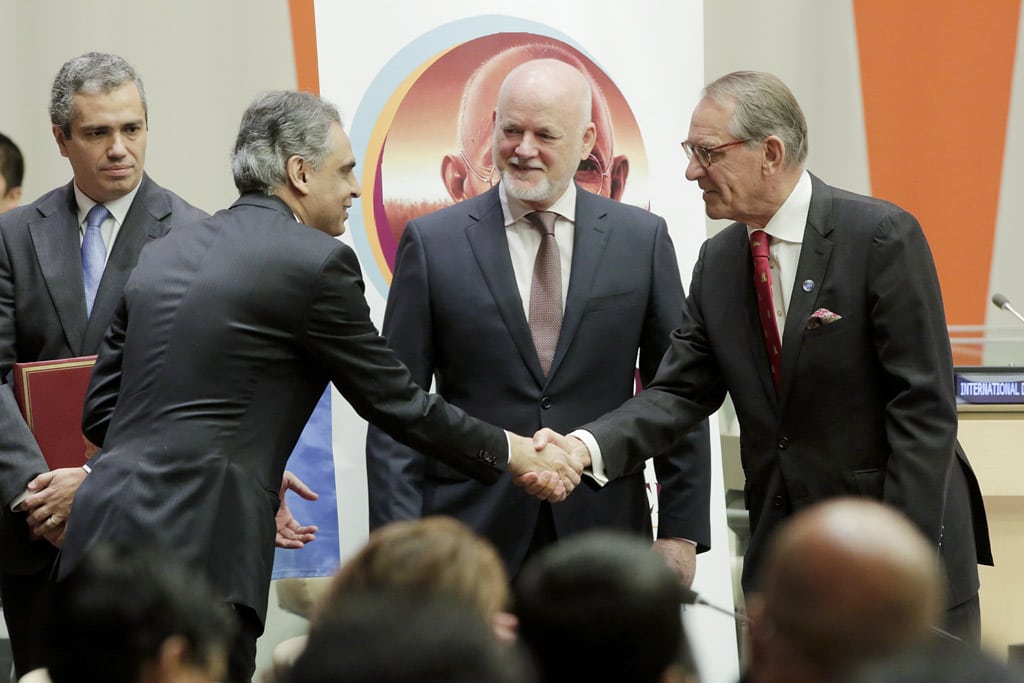
India, the world’s No. 3 greenhouse gas emitter, joined the Paris Agreement on climate change Sunday, another major step that could mean the accord will trigger entry into force in a matter of days.
“The country is embarking on a sustainable development pathway. Prime Minister [Narendra] Modi calls it ‘development without destruction,’” United Nations Deputy Secretary-General Jan Eliasson said after India deposited its instrument of ratification with the U.N.
The Paris Agreement, which establishes a legal framework under which nations are to pursue nationally determined actions to address climate change, will enter into force 30 days after 55 nations representing at least 55 percent of global greenhouse gas emissions have formally joined. As of Oct. 2, 62 nations representing 51.89 percent of global emissions have done so.
The bulk of the 51.89 percent comes from the top two emitters, China and the U.S., which joined the agreement in early September. They are responsible for 20.09 percent and 17.89 percent of emissions, respectively. India’s contribution of 4.1 percent leaves only 3.11 percent to other countries.
Several additional nations have pledged to join the agreement before Oct. 7, the last day possible if the agreement is to enter into force in time for the 22nd session of the Conference of the Parties to the United Nations Framework Convention on Climate Change, scheduled for Nov. 7-18 in Marrakesh, Morocco.
On Friday, European Union environmental ministers approved the early ratification of the Paris Agreement, allowing the bloc to submit its ratification to the United Nations before all member states have ratified domestically.
Pending the approval of the European Parliament, which EU Commissioner for Climate Action and Energy Miguel Arias Cañete framed as a sure thing, the EU will ratify no later than Oct. 5.
It remains uncertain how exactly the EU ratification will move the dial on GHG emissions represented. In total, the 28 EU member states represent 12.1 percent of global emissions, but only seven member states have ratified the agreement domestically at this point. Those member states – Germany, France, Austria, Hungary, Slovakia, Malta, and Portugal – are expected to submit their documents of ratification to the U.N. at the same time as the EU presents its document.
If only the emissions of those seven nations count toward the 55 percent tracker, they will move the dial 4.57 percent. That, combined with India’s ratification, would push the ticker to 56.46 percent, triggering entry into force.
“India’s leadership builds on the continued strong political momentum from Paris for urgent global action on climate change,” a statement released by U.N. Secretary General Ban Ki-moon said. “The Secretary-General calls on all Parties to accelerate their domestic procedures in order to join the agreement as soon as possible this year.”
According to a Sept. 21 U.N. media report, Australia, Bulgaria, Cambodia, Canada, Costa Rica, Côte d’Ivoire, the European Union, Hungary, Kazakhstan, New Zealand, Poland, and South Korea pledged to U.N. Secretary General Ban Ki-moon to deposit their instruments of ratification this year.